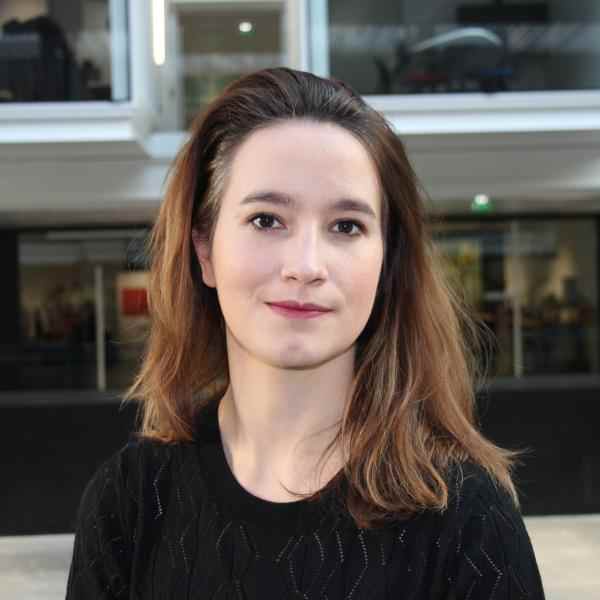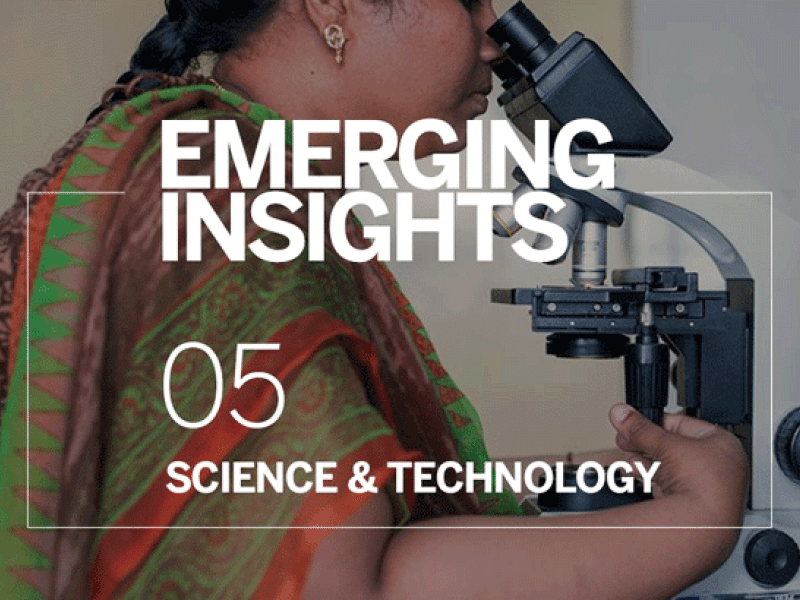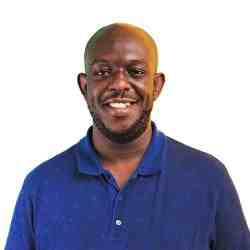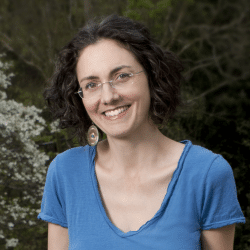Introduction
While there is a growing understanding of science’s potential in contributing to solve the most pressing social challenges, numerous barriers still prevent scientific research to be deliberately and efficiently leveraged towards this goal. Mélanie is building the missing framework and standards to make impact-driven research a recognized, easily accessible and attractive field.
L'idée nouvelle
In a world where researchers are primarily driven by economic incentives, Mélanie is building a bridge between science and its application for people. By creatively curating a process that integrates both scientists and social entrepreneurs, she is introducing the practice of “social valorization”, which consists in attributing value to a scientific research work being applied to solve social issues.
Her efforts are geared to create a system where researchers are actively incentivized to drive their work toward social impact, rather than incidentally. She is demonstrating how this social valorization process is possible by bringing in the necessary new partners, namely social entrepreneurs. To do so, she creates the needed setting for researchers and social entrepreneurs to meet, discuss about the problem they want to solve, and further collaborate. Crossing perspectives allows to connect the science insight, its implementation on the ground and its social impact. Mélanie envisions the structures she is creating to become part of institutional valorization processes in all research institutes.
Because she knows that making room for impact-driven research implies redirecting existing capacities, she is also looking to change the criteria for research budgets to include social impact potential. As a first step of this process, she managed to get social entrepreneurs recognized as eligible recipients for European Union research funds. Mélanie also targets private companies, who hold a significant part of the research budget. She bridges CSR and R&D departments to introduce social impact as an integral criterion in the research planning process.
Le problème
Every year, more than 45 billion euros are spent in research and development activities in France, of which more than 60% are spent by private companies. Research expenses are largely steered towards either basic research or applied research to economic purpose. The entire research system, from grant making to valorization processes, is geared toward economic return, which limits where applied research can go and reduces its availability for social returns.
Even when scientist researchers are interested in pursuing a social impact, they don’t always have the necessary will, skills and time to operationally take their findings from the lab to the field by themselves. On the other hand, social entrepreneurs can lack scientific insights to reach the impact they wish to have on the world. While there are incentives, a legal framework, a specific financial pipeline and a support ecosystem for collaborations between scientists and corporations, there is none of them for facilitating and structuring collaborations and communication between scientists and the civil society. They generally don’t know each other nor speak the same language; the academic field is not easily accessible. Consequently, collaboration between research scientists and communities or local social entrepreneurs represent less than 0,4% of worldwide research effort (Houllier’s Report, French Ministry of Research).
As a result, there is a missed opportunity for science to contribute to solving pressing social problems. Nevertheless, global institutions are increasingly aware of this potential. For instance, the European Research and Innovation Framework Program “Horizon 2020” (budget of 70 billion euros) set the objective of encouraging Responsible Research and Innovation. The challenge is now to find the relevant “how-to’s” to make this change happen.
La stratégie
Impact-driven research is a research work that is led with the intentional and primary objective to have results being applied to solve a social or environmental challenge. A good example of impact-driven research can be the “Faso Soap” project in which researchers work at defining the formula for an efficient anti-malaria soap. With her organization SoScience, Mélanie does not aim at replacing the existing research system, but at stretching its boundaries to add impact-driven research as a recognized path. Thus, she is laying the first bricks of a research ecosystem where targeting social impact goals is facilitated, encouraged and valued.
To demonstrate how this is concretely feasible, Mélanie first structured the new relevant spaces for needed new collaborations to emerge. The objective is to create a pattern of strategic relationship building among scientists who want to contribute to the world’s good, and not just make money, and social entrepreneurs who can connect that potential to work on the ground. She carefully crafted the program “The Future Of __”, which starts with a one-day collaborative event gathering 40 selected experts of a theme (The Future Of Food, Soil, Water, ...) to meet and identify potential collaborations. The number of participants is limited to ensure qualitative and deep exchanges. The selection of the attendees is also key; first, these experts must come from diverse backgrounds: scientists (including post-docs, who have expertise but often struggle finding a full-time position), social entrepreneurs, NGOs, industrial companies; second, they should have testified a clear motivation to look for new partners in their work. Mélanie also carefully frames the theme of her program around a challenge to be solved rather than a specific technical development issue to make sure diverse profiles apply. The launching event is followed by a six-month follow-up to support the actual implementation of the impact-driven collaborations between the attendees (mediation, help to identify funding sources, ...). This is particularly necessary at the beginning of the project as research scientists and social leaders have different languages and temporalities. The “The Future Of __ ” programs are funded and sponsored by public research institutes or companies who see an opportunity to identify new partners in an open-innovation approach. For instance, the food company Diana Group sponsors the currently ongoing program focused on how to further improve the industrial valorization of fruit and vegetable waste.
Previous editions of the program, on Soil and Water, generated 40 impact-driven collaborations between attendees from 17 different countries. More than half participants reported an on-going collaboration three months later. Mélanie documented the “The Future Of_” process and methodologies so that it can be independently replicated in the future. In this sense, Mélanie targets as replicators the “valorization” services of research institutes who are directly interested in new ways to enhance economic and social valorization of research. Mélanie successfully engaged the IRD (Institute for Research and Development) counting 800 researchers; she ambitions to build a network of committed research institutes that will advocate for impact-driven research. She is currently in discussion with the biggest French research institutes, such as the national center for scientific research (CNRS). In addition, Mélanie is also training the social entrepreneurship incubator “La Fabrique” in Burkina Faso to organize such a collaborative program in their own local and cultural context in 2018. Finally, she hopes to build on the “The Future Of_” former participants to develop an influential cross-sector community of impact-driven science ambassadors.
Considering the private sector channels the majority of research and development investments, Mélanie also works with private companies to move them from valorization focused on risk to return on investment, to seeing market opportunities in impact-driven innovation. Her longer-term ambitious goal here is to change the way corporates are allocating funds to research so that social good becomes part of doing business and gets out of CSR silos. While extending her impact, this consulting activity also provides her with a sustainable revenue stream. As an example, she worked with the French multinational car manufacturer Renault R&D and CSR departments to identify new market opportunities integrating social impact criteria, such as investing in the development of low-cost refrigerated vans in order to help solving the issue of food waste. In some underprivileged rural areas in South-East Asia or Africa, 10 to 30% of produced food are indeed wasted because of improperly working refrigerated transport means. Mélanie identified visualizing opportunities as an important first step and thus developed and freely shared online a dedicated tool called “the Matrix of Opportunities” to help the company concretely visualize interactions between economic drivers, societal challenges and their own expertise. Mélanie is now in discussion with large international consulting companies to further structure the market around this emerging business and thus incentivize more companies to invest in impact-driven innovation.
While demonstrating this is feasible on the field, Mélanie also works at building a facilitating framework for impact-driven research to become a recognized, easily accessible and attractive career path for scientists. First, to generate wider awareness and demand, Mélanie shares her vision in conferences and gives lectures in universities about responsible research and innovation. She also published a book in 2017 to broadcast her insight and reach out to new partners. In collaboration with a communication agency, she is now preparing a media campaign to showcase successful impact-driven research projects. Second, she works at building a dedicated financial pipeline for impact-driven research by supporting research funding agencies in integrating social impact in their criteria. She already led this work with the national funding agency ADEME which has now a greater ability to identify and support impact-driven research collaborative projects. Finally, Mélanie is also advocating at a decision-making institutional level: she has been appointed as an expert on “Science with and for Society” by the European Commission and, as such, has been involved in working groups on reshaping European research policy. Her advocacy led to the opening of EU research funds for social entrepreneurs, who were not eligible to these grants before.
La personne
Mélanie grew up in a committed family: her grandfather was a resistant against Franco and she was encouraged to find her passion and personal calling. She was always scientifically-minded and very early imagined using science for social impact: as a child she dreamt about finding a vaccine against AIDS. She was then trained as an engineer at ESPCI Paris Tech and chose to study neurosciences rather than quantum physics because it seemed more likely to bring social impact opportunities. As a first job she worked in Japan for a telecommunication company designing electrodes that would make possible for the brain to direct external devices. She was passionate about her research and imagined it could lead to directly connecting prosthetic limbs to the brain, but she soon realized that her employer was only driven by the search of a competitive commercial advantage. At the same time, her friend and future co-founder Eloïse was connected to both the research and social entrepreneurship spheres but met difficulties in bridging these two worlds. Mélanie thus started questioning how the research system worked, what was driving research investment, and how she could align her will to have an impact and her job as a scientist researcher. As she did not find an existing facilitating framework to lead impact-driven research, she took on the mission to develop this new field.
Back in France in 2012, Mélanie and Eloïse co-founded SoScience with the simple initial idea to connect social entrepreneurs and researchers: they testified there existed an actual demand on both sides. But when it came to engage in the process not only individuals but whole research institutes and companies, whereas Mélanie had imagined that there would be a natural excitement within organizations to shift in this direction, at first their message was not easily heard and they lacked resources. Eloïse decided to pursue another dream but Mélanie persevered and personally called more than 200 potential partners and clients, so that she could get enough of the right people to take her calls and thus foster new encounters and collaborations. She managed to change her narrative and her posture to extend her reach and improve the sustainability of her model and she carried on, convincing major public actors and building the field she could strive in. Mélanie has developed over the years a strong network in the research, the business and the social entrepreneurship spheres, that strongly serves her work as a connector and catalyzer to change the way research is led and leveraged in order to achieve social impact.
A pioneer on impact-driven science “how-to’s”, Mélanie has proved an impressive resiliency to bring innovation and openness into a usually very closed, ruled and mostly masculine research world. Her expertise is now widely recognized: Mélanie is not only consulted as an expert by the European Commission, but she is also identified and invited by leading global technology innovation organizations, such as Google X Lab.

 Tile image
Tile image Tile image
Tile image


